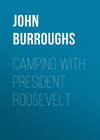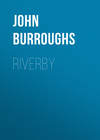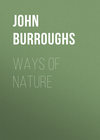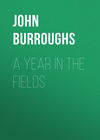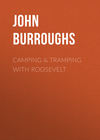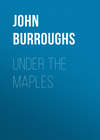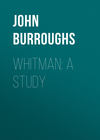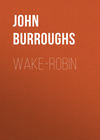Buch lesen: «Camping with President Roosevelt», Seite 4
THE PRESIDENT ALONE IN THE WILDERNESS
The situation was delightful, – no snow, scattered pine trees, a secluded valley, rocky heights, and the clear, ample, trouty waters of the Yellowstone. The President was not in camp. In the morning he had stated his wish to go alone into the wilderness. Major Pitcher very naturally did not quite like the idea, and wished to send an orderly with him.
"No," said the President. "Put me up a lunch, and let me go alone. I will surely come back."
And back he surely came. It was about five o'clock when he came briskly down the path from the east to the camp. It came out that he had tramped about eighteen miles through a very rough country. The day before, he and the major had located a band of several hundred elk on a broad, treeless hillside, and his purpose was to find those elk, and creep up on them, and eat his lunch under their very noses. And this he did, spending an hour or more within fifty yards of them. He came back looking as fresh as when he started, and at night, sitting before the big camp fire, related his adventure, and talked with his usual emphasis and copiousness of many things. He told me of the birds he had seen or heard; among them he had heard one that was new to him. From his description I told him I thought it was Townsend's solitaire, a bird I much wanted to see and hear. I had heard the West India solitaire, – one of the most impressive songsters I ever heard, – and I wished to compare our Western form with it.
A STRANGE BIRD SONG
The next morning we set out for our second camp, ten or a dozen miles away, and in reaching it passed over much of the ground the President had traversed the day before. As we came to a wild, rocky place above a deep chasm of the river, with a few scattered pine trees, the President said, "It was right here that I heard that strange bird song." We paused a moment. "And there it is now," he exclaimed.
THE SOLITAIRE
Sure enough, there was the solitaire singing from the top of a small cedar, – a bright, animated, eloquent song, but without the richness and magic of the song of the tropical species. We hitched our horses, and followed the bird up as it flew from tree to tree. The President was as eager to see and hear it as I was. It seemed very shy, and we only caught glimpses of it. In form and color it much resembles its West India cousin, and suggests our catbird. It ceased to sing when we pursued it. It is a bird found only in the wilder and higher parts of the Rockies. My impression was that its song did not quite merit the encomiums that have been pronounced upon it.
At this point, I saw amid the rocks my first and only Rocky Mountain woodchucks, and, soon after we had resumed our journey, our first blue grouse, – a number of them like larger partridges. Occasionally we would come upon black-tailed deer, standing or lying down in the bushes, their large ears at attention being the first thing to catch the eye. They would often allow us to pass within a few rods of them without showing alarm. Elk horns were scattered all over this part of the Park, and we passed several old carcasses of dead elk that had probably died a natural death.
THE "SINGING GOPHER"
In a grassy bottom at the foot of a steep hill, while the President and I were dismounted, and noting the pleasing picture which our pack train of fifteen or twenty mules made filing along the side of a steep grassy slope, – a picture which he has preserved in his late volume, "Out-Door Pastimes of an American Hunter," – our attention was attracted by plaintive, musical, bird-like chirps that rose from the grass about us. I was almost certain it was made by a bird; the President was of like opinion; and I kicked about in the tufts of grass, hoping to flush the bird. Now here, now there, arose this sharp, but bird-like note. Finally we found that it was made by a species of gopher, whose holes we soon discovered. What its specific name is I do not know, but it should be called the singing gopher.
Our destination this day was a camp on Cottonwood Creek, near "Hell Roaring Creek." As we made our way in the afternoon along a broad, open, grassy valley, I saw a horseman come galloping over the hill to our right, starting up a band of elk as he came; riding across the plain, he wheeled his horse, and, with the military salute, joined our party. He proved to be a government scout, called the "Duke of Hell Roaring," – an educated officer from the Austrian army, who, for some unknown reason, had exiled himself here in this out-of-the-way part of the world. He was a man in his prime, of fine, military look and bearing. After conversing a few moments with the President and Major Pitcher, he rode rapidly away.
THE SECOND CAMP
Our second camp, which we reached in mid-afternoon, was in the edge of the woods on the banks of a fine, large trout stream, where ice and snow still lingered in patches. I tried for trout in the head of a large, partly open pool, but did not get a rise; too much ice in the stream, I concluded. Very soon my attention was attracted by a strange note, or call, in the spruce woods. The President had also noticed it, and, with me, wondered what made it. Was it bird or beast? Billy Hofer said he thought it was an owl, but it in no way suggested an owl, and the sun was shining brightly. It was a sound such as a boy might make by blowing in the neck of an empty bottle. Presently we heard it beyond us on the other side of the creek, which was pretty good proof that the creature had wings.
"Let's go run that bird down," said the President to me.
So off we started across a small, open, snow-streaked plain, toward the woods beyond it. We soon decided that the bird was on the top of one of a group of tall spruces. After much skipping about over logs and rocks, and much craning of our necks, we made him out on the peak of a spruce. I imitated his call, when he turned his head down toward us, but we could not make out what he was.
"Why did we not think to bring the glasses?" said the President.
"I will run and get them," I replied.
TREEING AN OWL
"No," said he, "you stay here and keep that bird treed, and I will fetch them."
So off he went like a boy, and was very soon back with the glasses. We quickly made out that it was indeed an owl, – the pigmy owl, as it turned out, – not much larger than a bluebird. I think the President was as pleased as if we had bagged some big game. He had never seen the bird before.
Throughout the trip I found his interest in bird life very keen, and his eye and ear remarkably quick. He usually saw the bird or heard its note as quickly as I did, – and I had nothing else to think about, and had been teaching my eye and ear the trick of it for over fifty years. Of course, his training as a big-game hunter stood him in good stead, but back of that were his naturalist's instincts, and his genuine love of all forms of wild life.
ROOSEVELT THE NATURALIST
I have been told that his ambition up to the time he went to Harvard had been to be a naturalist, but that there they seem to have convinced him that all the out-of-door worlds of natural history had been conquered, and that the only worlds remaining were in the laboratory, and to be won with the microscope and the scalpel. But Roosevelt was a man made for action in a wide field, and laboratory conquests could not satisfy him. His instincts as a naturalist, however, lie back of all his hunting expeditions, and, in a large measure, I think, prompt them. Certain it is that his hunting records contain more live natural history than any similar records known to me, unless it be those of Charles St. John, the Scotch naturalist-sportsman.
The Canada jays, or camp-robbers, as they are often called, soon found out our camp that afternoon, and no sooner had the cook begun to throw out peelings and scraps and crusts than the jays began to carry them off, not to eat, as I observed, but to hide them in the thicker branches of the spruce trees. How tame they were, coming within three or four yards of one! Why this species of jay should everywhere be so familiar, and all other kinds so wild, is a puzzle.
In the morning, as we rode down the valley toward our next camping-place, at Tower Falls, a band of elk containing a hundred or more started along the side of the hill a few hundred yards away. I was some distance behind the rest of the party, as usual, when I saw the President wheel his horse off to the left, and, beckoning to me to follow, start at a tearing pace on the trail of the fleeing elk. He afterwards told me that he wanted me to get a good view of those elk at close range, and he was afraid that if he sent the major or Hofer to lead me, I would not get it. I hurried along as fast as I could, which was not fast; the way was rough, – logs, rocks, spring runs, and a tenderfoot rider.
